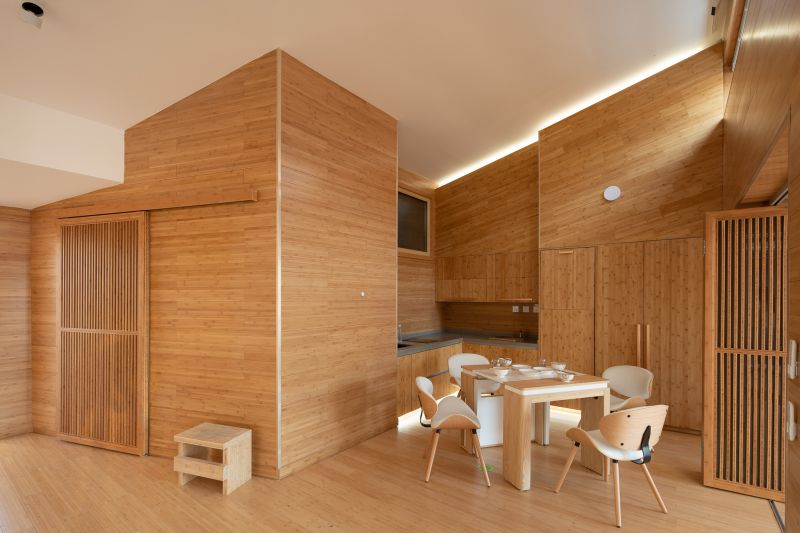Engineering the future: A new ISO standard on engineered bamboo

New standard marks a significant leap in the test methods of engineered bamboo.
On 12 December 2023, a new international standard for engineered bamboo proposed by INBAR, known as ISO 5257:2023 Bamboo structures – Engineered bamboo products – Test methods for determination of mechanical properties using small size specimens, was officially released by the International Organization for Standardization (ISO).
Bamboo is a renewable low-carbon material that offers numerous advantages, including a high strength-to-weight ratio, seismic resistance, low thermal conductivity, and excellent insulation performance. Engineered bamboo products have achieved standardization and modernization while preserving ecological sustainability. These products meet the requirements for industrialization and have significant potential for engineering applications.
ISO 5257:2023 specifies test methods, using small-size specimens, suitable for determining a suite of mechanical properties of engineered bamboo products, providing global users with an alternative test method to ISO 23478. This standard stands as a remarkable achievement in international collaboration, led by Prof. Huang and jointly drafted by Assistant Prof. Liu Yanyan and Postdoctoral Researcher Shen Yurong from Nanjing Forestry University, along with Assistant Prof. Huang Zirui from Southeast University. Approved in May 2020, this standard has persistently advanced amid the challenges of the pandemic, thanks to the efforts of the ISO/TC165 WG12 on Structural Uses of Bamboo.
Throughout its development, representatives from INBAR and multiple countries, including the USA, the UK, Canada, the Netherlands, the Philippines and Australia, actively participated in multiple rounds of extensive online discussions and solicited opinions. The draft was revised and developed with active involvement from experts such as Kent Harries (Professor at the University of Pittsburgh), David Trujillo (Assistant Professor at Coventry University), and Bhavna Sharma (Lecturer at the University of Southern California), ensuring a comprehensive standard. The strong support from Prof. Chui Ying, Chair of ISO/TC165, Mr. Paul Jaehrlich, Manager of ISO/TC165, the ISO/TC165 Secretariat, and Ms. Liu Kewei, Convenor of ISO/TC165 WG12, played a pivotal role in the successful development and official release of this standard.
The establishment of Working Group 12 in 2013, focusing on the structural uses of bamboo within ISO/TC165, marked a crucial step. Since then, experts from the group have published five international standards on bamboo structures, including three for round bamboo structures and two for engineered bamboo structures. Two additional international standards for engineered bamboo are currently in development. The other four published ISO standards on bamboo structures are as follows:
- ISO 19624:2018: Bamboo structures – Grading of bamboo culm – Basic principles and properties;
- ISO 22157:2019: Bamboo structures – Determination of physical and mechanical properties of bamboo culms – Test methods;
- ISO 22156:2021: Bamboo structures – Bamboo culms — Structural design;
- ISO 23478:2022: Bamboo structures – Engineered bamboo products – Test methods for determination of physical and mechanical properties.
INBAR remains committed to collaborating with its Member States and partner organizations globally to advocate for the widespread adoption of international standards for the structural uses of bamboo.
Learn more about the Bamboo Construction Task Force.
Access the ISO 5257:2023.
